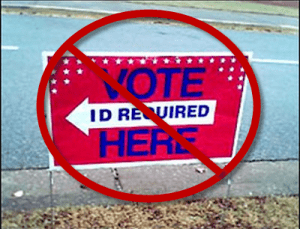More than 13,000 ex-felons may be eligible to vote but don’t know it, the American Civil Liberties Union of Florida said Wednesday, citing data it obtained from the Florida Parole Commission.

The ACLU said the commission is sitting on more than 17,000 Restoration of Civil Rights certificates that would notify former felons that they can now register to vote, but which have not reached their intended recipients. The civil rights group cross checked the names on those certificates with voter registration lists and found that 13,571 of them are not registered voters, presumably because many of them don’t know they’ve been cleared to register.
Florida is one of a minority of U.S. states that does not automatically restore civil rights once a felon has completed a sentence.
The certificates were sent between 2007 and March 2011, during which time a change in policy spearheaded by former Gov Charlie Crist allowed nonviolent ex-felons to have their rights automatically restored.
The policy was repealed in March 2011 after Florida Gov. Rick Scott and newly elected members of the Florida Cabinet voted to eliminate automatic restoration and again make it more difficult for ex-felons to get their civil rights, including the right to vote, restored.
Scott has been aggressively pursuing efforts to clean up the state’s voter rolls because, he says, there are some non-citizens who are ineligible to vote who are registered.
Following a legal battle, the state last month gained access to a federal Department of Homeland Security database to continue the effort to remove ineligible voters. An initial effort stalled when local supervisors of elections balked because of possible inaccuracies on an earlier list of potentially ineligible voters that was sent to the counties by the state.
“The contrast between the baseless claims that Governor Scott has made about voter fraud and the lengths to which he has gone to make voting more difficult, and the inattention to the thousands of voting rights restoration certifications gathering dust … could not be sharper,” Howard Simon, ACLU of Florida executive director, said in a statement.
Tammy Salmon, a parole commissioner administrative assistant, said the figures were correct and reflect certificates mailed to recipients who could not be found and left no forwarding address.
In some cases, the agency made “multiple attempts” to make contact, but to no avail, she said.
The parole commission’s website – https://fpcweb.fpc.state.fl.us/ – allows viewers to search to see if an ex-offender’s rights have been restored.
“We are going above and beyond to try to reach these folks,” Salmon said.
Eligible residents must register by Oct. 9 to vote in the general election in November.
By Michael Peltier


